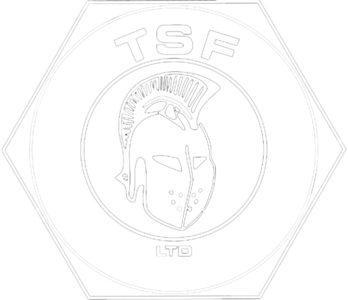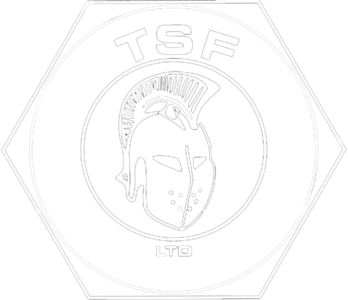|
3TG
|
Tantalum, tin, tungsten, gold
|
|
Authorizer
|
This field identifies the person responsible for the content of the declaration. The authorizer may be a different individual from the contact person. It is not correct to use the words ‘‘same’’ or similar identification to provide the name of the authorizer.
|
|
Conflict Mineral
|
"As defined in 2010 United States legislation, Dodd-Frank Wall Street Reform and Consumer Protection Act, Section 1502(e)(4): CONFLICT MINERAL.—The term ‘‘conflict mineral’’ means— (A) columbite-tantalite (coltan), cassiterite, gold, wolframite, or their derivatives; or (B) any other mineral or its derivatives determined by the Secretary of State to be financing conflict in the Democratic Republic of the Congo or an adjoining country. (available at http://www.sec.gov/about/laws/wallstreetreform-cpa.pdf)"
|
|
Covered Country(ies)
|
Covered Country(ies) as defined by the United States Dodd-Frank Wall Street Reform and Consumer Protection Act of 2010. These countries include the Democratic Republic of the Congo and the nine countries with which it shares an internationally recognized border: Angola, Burundi, Central African Republic, Republic of the Congo, Rwanda, South Sudan, Tanzania, Uganda, Zambia.
|
|
Declaration Scope or Class
|
For the purposes of this template, “scope” describes the applicability of the information provided by the reporting company. The scope may encompass the entirety of a company’s services and/or products, or at a company’s discretion, the template may be used to report on a specific product (or products), or, be ‘User defined’. The ‘User defined’ scope selection or class may be used to describe any subset of a company’s operation or product portfolio.
|
|
Dodd-Frank
|
2010 United States legislation, Dodd-Frank Wall Street Reform and Consumer Protection Act, Section 1502 (“Dodd-Frank”) (http://www.sec.gov/about/laws/wallstreetreform-cpa.pdf)
|
|
DRC
|
Democratic Republic of Congo
|
|
DRC conflict-free
|
Products that do not contain minerals that directly or indirectly finance or benefit armed groups in the Democratic Republic of the Congo or an adjoining country. Source: 2010 United States legislation, Dodd-Frank Wall Street Reform and Consumer Protection Act, Section 1502 (http://www.sec.gov/about/laws/wallstreetreform-cpa.pdf)
|
|
Gold (Au) refiner (smelter)
|
A gold refiner is a metallurgical operation that produces fine gold with a concentration of 99.5% or higher from gold and gold-bearing materials with lower concentrations. Refer to the RMAP audit protocol for this metal for a complete description: http://www.responsiblemineralsinitiative.org/smelter-introduction/.
|
|
Independent Third-Party Audit Firm
|
With respect to smelter audits, an “Independent Third-Party Audit Firm” is a private sector organization competent in evaluating the smelter or refiner’s materials traceability against the standards of the RMAP or equivalent audit protocols. To maintain neutrality and impartiality, such organization and its audit team members must have no conflicts of interest with the auditee.
|
|
Intentionally added
|
"Intentionally added is commonly known as the deliberate use of a substance, or in this case metal, in the formulation of a product where continued presence is desired to provide a specific characteristic, appearance or quality. While the SEC does not define the phrase “intentionally added” in the final rule, the rule’s preamble states: “[W]e agree that being intentionally added, rather than being a naturally-occurring by-product, is a significant factor in determining whether a conflict mineral is ‘‘necessary to the functionality or production’’ of a product. This is true regardless of who intentionally added the conflict mineral to the product so long as it is contained in the product. [D]etermining whether a conflict mineral is considered ‘‘necessary’’ to a product should not depend on whether the conflict mineral is added directly to the product by the issuer or whether it is added to a component of the product that the issuer receives from a third party. Instead, the issuer should ‘report on the totality of the product and work with suppliers to comply with the requirements.’ Therefore, in determining whether a conflict mineral is ‘‘necessary’’ to a product, an issuer must consider any conflict mineral contained in its product, even if that conflict mineral is only in the product because it was included as part of a component of the product that was manufactured originally by a third party.” (56296 Federal Register / Vol. 77, No. 177 / Wednesday, September 12, 2012 / Rules and Regulations)"
|
|
IPC
|
IPC (www.IPC.org) is a global industry association based in Bannockburn, Ill., dedicated to the competitive excellence and financial success of its 3,400 member companies which represent all facets of the electronics industry, including design, printed board manufacturing, electronics assembly and test. As a member-driven organization and leading source for industry standards, training, market research and public policy advocacy, IPC supports programs to meet the needs of an estimated $2.0 trillion global electronics industry. IPC maintains additional offices in Taos, N.M.; Washington, D.C.; Stockholm, Sweden; Moscow, Russia; Bangalore, India; Bangkok, Thailand; and Shanghai, Shenzhen, Chengdu, Suzhou and Beijing, China.
|
|
IPC-1755 Conflict Minerals Data Exchange Standard
|
This IPC standard establishes the requirements for exchanging conflict minerals data between suppliers and their customers. To meet the needs of a broad range of users, this standard provides flexibility in the scope of the products covered within a single declaration. This standard is not a compliance guide.
|
|
Necessary for the Functionality of a Product
|
"The SEC does not provide a formal definition of this phrase in the final rule, however it provides some guidance: A conflict mineral will be considered to be necessary to its functionality of a product if it meets the following: 1) is intentionally added to the product or any component of the product and is not a naturally-occurring byproduct; 2) is necessary to the product’s generally expected function, use or purpose; and 3) is incorporated for the purpose of ornamentation, decoration, or embellishment, whether the primary purpose of the product is ornamentation or decoration. NOTE: The conflict mineral must be contained in the product to be applicable. (56296 Federal Register / Vol. 77, No. 177 / Wednesday, September 12, 2012 / Rules and Regulations)"
|
|
Necessary for the Production of a Product
|
"The SEC does not provide a formal definition of this phrase in the final rule; however, it provides some guidance: A conflict mineral will be considered to be necessary to the production of a product when: 1) it is intentionally included in the product’s production process, other than if it is included in a tool, machine, or equipment used to produce the product (such as computers or power lines); 2) it is included in the product (MUST be contained in the product to be applicable); and 3) it is necessary to the product. (56296 Federal Register / Vol. 77, No. 177 / Wednesday, September 12, 2012 / Rules and Regulations) "
|
|
OECD
|
Organisation for Economic Co-operation and Development
|
|
Product
|
A company’s Product or Finished good is a material or item which has completed the final stage of manufacturing and/or processing and is available for distribution or sale to customers.
|
|
RBA
|
Responsible Business Alliance (www.responsiblebusiness.org)
|
|
Recycled or Scrap Sources
|
Recycled or scrap sources are recycled metals, that are reclaimed end-user or post-consumer products, or scrap processed metals created during product manufacturing. Recycled metal includes excess, obsolete, defective, and scrap metal materials that contain refined or processed metals that are appropriate to recycle in the production of tin, tantalum, tungsten and/or gold. Minerals partially processed, unprocessed or byproducts from other ores are not included in the definition of recycled metal.
|
|
Responsible Minerals Assurance Process (RMAP)
|
The Responsible Minerals Assurance Process (RMAP) is a process developed by the RBA to enhance company capability to verify the responsible sourcing of metals. Further details of the RMAP can be found here: http://www.responsiblemineralsinitiative.org/responsible-minerals-assurance-process/.
|
|
Responsible Minerals Initiative
|
Founded in 2008 by members of the Responsible Business Alliance, the Responsible Minerals Initiative has grown into one of the most utilized and respected resources for companies addressing conflict minerals issues in their supply chains. Over 360 companies from ten different industries participate in the CFSI today, contributing to a range of tools and resources including the Responsible Minerals Assurance Process, the Conflict Minerals Reporting Template, Reasonable Country of Origin Inquiry data and a range of guidance documents on conflict minerals sourcing. The RMI also runs regular workshops on conflict minerals issues and contributes to policy development and debates with leading civil society organizations and governments. Additional information is available at http://www.responsiblemineralsinitiative.org.
|
|
RMAP Conformant Smelter List
|
"The Responsible Minerals Assurance Process (RMAP) Conformant Smelter List is a published list of smelters and refiners that have undergone assessment through the RMAP, a program of the Responsible Minerals Initiative (RMI) or industry equivalent program (such as Responsible Jewellery Council or London Bullion Market Association) and have been validated to be in conformance with the protocols. If a smelter or refiner is not on the list, it has either not completed a RMAP assessment or is not in conformance with the RMAP protocol. A list of smelters and refiners which have been validated to be conformant to the RMAP can be found at www.responsiblemineralsinitiative.org. "
|
|
SEC
|
U.S. Securities and Exchange Commission (www.sec.gov)
|
|
Smelter
|
A smelter or refiner is a company that procures and processes mineral ore, slag and/or materials from recycled or scrap sources into refined metal or metal containing intermediate products. The output can be pure (99.5% or greater) metals, powders, ingots, bars, grains, oxides or salts. The terms “smelter” and “refiner” are used interchangeably throughout various publications.
|
|
Smelter Identification Number
|
A unique identification number the RMI assigns to companies that have been reported by members of the supply chain as smelters or refiners, whether or not they have been verified to meet the characteristics of smelters or refiners as defined in the RMAP audit protocols.
|
|
Tantalum (Ta) smelter
|
A tantalum smelter (also known as a processor) is defined as a company that converts Ta-containing ores, concentrates, slags or secondary materials into tantalum intermediate products or other tantalum containing products for direct sales or further processing into Ta-containing products, such as Ta powders, Ta components, Ta oxides, alloys, wires, sintered bars, etc. Refer to the RMAP audit protocol for this metal for a complete description at: http://www.responsiblemineralsinitiative.org/smelter-introduction/.
|
|
Tin (Sn) smelter
|
Primary [tin] smelters are companies with one or more facilities treating tin containing ore concentrates in order to produce tin metal. Secondary [tin] smelters are companies with one or more facilities that treat secondary materials by reduction for the production of crude or higher grade tin or tin product such as solder. A smelter as referred to within this audit protocol may operate as either one or both types of business operation. Refer to the RMAP audit protocol for this metal for a complete description: http://www.responsiblemineralsinitiative.org/smelter-introduction/.
|
|
Tungsten (W) smelter
|
A company with one or more facilities that converts W-containing ores (such as wolframite and scheelite), W concentrates, or W-bearing scrap (secondary material) into tungsten containing intermediates such as Ammonium Para-Tungstate (APT), Ammonium Meta-Tungstate (AMT), ferrotungsten, and tungsten oxides for direct sales or further processed into W-containing products (such as W powder or W-carbide powder). Refer to the RMAP audit protocol for this metal for a complete description: http://www.responsiblemineralsinitiative.org/smelter-introduction/.
|

